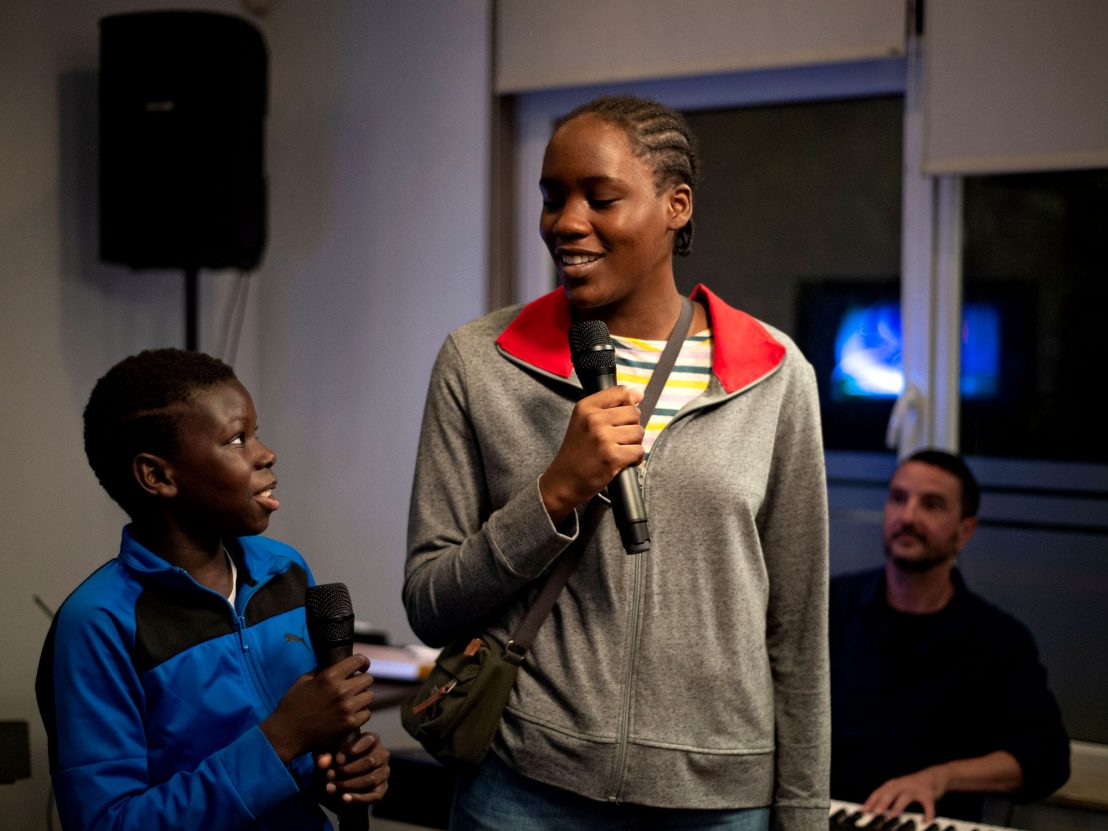
The Dardenne brothers return with a harrowing story of human trafficking in Belgium, centring on two young migrants.
Human trafficking has figured frequently in the films of the Belgian brothers Jean-Pierre and Luc Dardenne since their 1996 breakthrough, The Promise. It’s a subject suited to their philosophy, or philosophies – spiritual, political, aesthetic.
The human commodity speaks to the imperilled status of the soul in the material world, while revealing the transactional web that structures society, in particular the black-market ecosystem which sets the boundaries of their rigorously cause-and-effect narratives, shot handheld in unobtrusively long takes which often tail the characters around Belgium’s less-fashionable urban environs. (They literally follow the money.)
Tori and Lokita, about a teenage girl and preadolescent boy from Benin on the outskirts of Liege – him with papers, her without – is the latest variation on this theme. We find this time a more despairing Dardennes’ film than the redemptive hits of Cannes competitions past: Tori and Lokita is at once more brutal and more maudlin. Has the world changed or have they changed?
We open with Lokita (Mbundu Joely) close-up, looking anxious, as an immigration official skeptically questions the story of Tori (Pablo Schils) being her brother. Tori, who was at risk in Benin, has legal status in Belgium (which still means he needs to be back to his dormitory by 10pm), but the Belgian bureaucracy doubts Lokita is really his sister. For us, however, there’s no doubting their bond. They sing each other lullabies, and Tori shows Lokita the drawings he made at school, and they care for each other. Tori keeps the pills for Lokita’s panic attacks, and Lokita shoulders the worst of their work in the shadow economy.
No filmmaker since Bresson has depicted cash transfers with more specificity and care than the Dardennes. Here, Lokita has hands from all directions reaching into her pocket and pulling her this way and that. The smuggler that brought her over is keeping a close eye on his investment; her mother on the phone relies on her remittances for her other children’s school fees. The Dardennes, with the precision of their storytelling, teach you to watch Lokita’s finances as closely as she has to. Whenever she parts with a bill, you know who gave it to her, and what for.
Lokita needs her papers to get legitimate work, as a home health aide – hardly a bright future given the home-care industry’s notorious exploitation of migrant labor, as the Dardennes surely know, but better than running drugs. Tori and Lokita make their deliveries on behalf of a chef in a pizza restaurant, who switches out their phones for burners and sets aside leftovers for them to take home at the end of the night.
If they want the leftovers, they have to ask him for them, every time. If they want a box to take the food home in, they have to ask for that, too. Every interaction is fraught with knowledge of their precarity and lack of leverage: the pizza chef also pays Lokita for extras, for which he sets the rate, and the terms.
We know who Lokita and Tori are – we see them with each other, in the rare moments when they’re off the clock. Every other relationship they have is strictly transactional, with people whose true, ugly faces are revealed only gradually, as Lokita discovers that the only people willing to make room for her in European society are the people who see a way to use her. The Dardennes outline a social indictment with familiar clarity and an undimmed faith in the purity of familial love – the purity, if not the power.
Little White Lies is committed to championing great movies and the talented people who make them.
Published 25 May 2022

A power struggle begins after the death of the grand imam at a prestigious Cairo university in Tarik Saleh’s conventional drama.

The Dardenne brothers change tack with this provocative portrait of a teenage Muslim fundamentalist.

Letitia Wright and Tamara Lawrance star in Agnieszka Smoczyńska’s ambitious but flawed biographical feature.